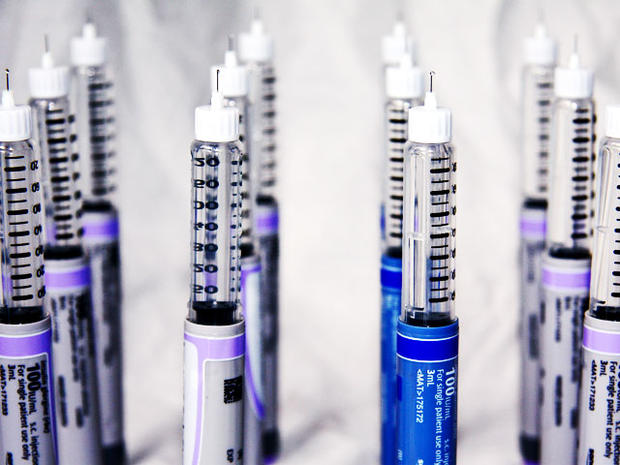Clinic may have exposed patients to HIV, hepatitis: How to stay safe
(CBS) Ever worry that someone in your doctor's office will accidentally expose you to HIV or another dangerous virus? That nightmare apparently came true for patients at one Midwestern clinic.
The Dean Clinic in Madison, Wis., informed state and local officials that 2,345 patients may have been exposed to hepatitis B, hepatitis C, and HIV between 2006 and 2011, when a diabetes educator working there used insulin demonstration pens and finger stick devices "inappropriately" during patient visits.
"Our goal is to ensure that those who may have been affected by the inappropriate use are promptly informed, tested and supported," the Clinic's CEO Dr. Craig Samitt, said in a written statement.
The former employee reportedly changed needles on these devices each time, but reused the rest of the devices - which may trap microscopic amounts of blood and cross-contaminate a patient, reported WMTV. Further, the insulin pen wasn't even supposed to be used on patients.
"It's intended to be a demonstration device used on an inanimate object such as a pillow or an orange to demonstrate insulin," Mark Kaufman, chief medical officer at the Dean Clinic, told WMTV.
The Clinic called the incident "isolated," and plans to reeducate its staff on proper use of these devices, according to the statement.
Though this incident may indeed be isolated, it represents a common fear patients have when seeking treatment. Is there anything a patient can do to ensure this doesn't happen, or are they at the mercy of their health care provider to make sure equipment is safe?
"Patients are not powerless," Dr. Robert Glatter, editorial board member for Medscape Emergency Medicine who isn't involved in this case, told CBS News in an email. He said patients could ask directly if their doctor has washed their hands, or changed cartridges. "Although it should not be necessary, this additional step will provide an added layer of patient safety," he said.
Other experts agreed.
"Some situations are impossible to anticipate," Dr. Orly Avitzur, medical adviser at Consumer Reports - who is not involved in this case - told CBS News in an email. "But patients can ask to see the sterile package opened when it comes to needles."
Avitzur said she makes it a point to tell all patients that needles are sterile, disposable, and have never been used before.
Said Avitzur, "It is both astonishing and tragic that patients can still be exposed to bloodborne pathogens due to very rare failures to follow infectious disease standards."

